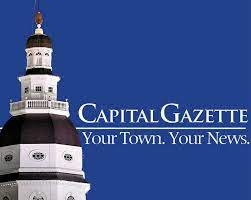900 Bestgate Road
Suite 400
Annapolis, MD 21401
410.280.1102

Many of us have heard the phrase, “the great wealth transfer,” but what does it really mean? The phrase signifies the gradual shift in demographics and finances of the baby boomer generation (born 1946-1964), to future generations, including millennials (born 1981-1996). The term “baby boomer” originated as a result of a strong postwar economy where Americans were so confident that they began having large families — creating a boom in the population and consequently, the economy. This translated into extraordinary economic growth and accumulated wealth for baby boomers.
Now, as boomers retire, require long-term care and eventually pass, their collected wealth, roughly $30 trillion to $68 trillion, will be transferred to their children, grandchildren and other beneficiaries. This great transfer of wealth is predicted to affect the U.S. economy as a whole. But first, let’s take a look at how it affects each generation and what that means for the average person.
If you are a millennial, begin working with a financial adviser to figure out a plan for retirement and for a possible transfer of wealth coming your way. Consider ways to lessen taxes such as Roth IRA conversions, life insurance, trusts and charitable giving — nearly 75% of millennials consider themselves philanthropists. A professional adviser can work with you to create a realistic financial plan, as well as work with CFAAC philanthropic advisers to assist you in figuring out a way to support your favorite charities. Making these plans can help create a smooth road for an uncertain future for two reasons: First, millennials will be the first generation in which most will retire without a defined pension plan, relying instead on matching contributions from employers and their own retirement savings. Second, millennials shouldn’t depend upon wealth transfer from their parents. Why? Baby boomers are expected to retire earlier, travel more and live longer — thereby adding complexity to the transfer.
According to a recent Coventry survey, more than 75% of the 1,500 retirees surveyed are not planning to leave a nest egg for their family, saying that making memories and enjoying experiences are their priorities. In addition, as baby boomers live longer, they may also pass along this wealth not only to their children, but also to grandchildren and even great-grandchildren (sometimes skipping their children altogether). And because of this generation’s longer life expectancy, a lot of this wealth may end up in the medical system. According to Fidelity, couples who retired at 65 years old in 2021, are expected to pay an estimated $300k in medical costs throughout their retirement.
Whatever your stage in life, working with CFAAC philanthropic professionals can help you examine your charitable giving priorities and passions. To figure out what type of impact you want to make, answer the following questions:
-
Are there any causes you are passionate about?
-
Where are you already giving money?
-
Where are you spending your time?
-
What are your dreams for the community? The world?
-
What’s important to you? What are your values?
-
Do you see patterns in your giving?
You might want to include family members in these charitable discussions and consider developing a family mission statement or vision for charitable giving together. Many families find doing this to be a very meaningful experience.
To tailor a plan for your specific needs, reach out for a consultation with CFAAC or invite us to join a meeting with your professional adviser. Community Foundations exist to support philanthropy in the community and our consultations are always completely confidential and without any obligation to a commitment. For more information, contact us at 410.280.1102.
This story was originally printed in the May 8, 2022 edition of the CAPITAL GAZETTE.